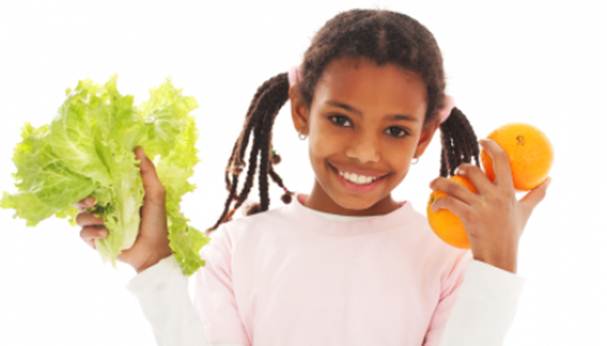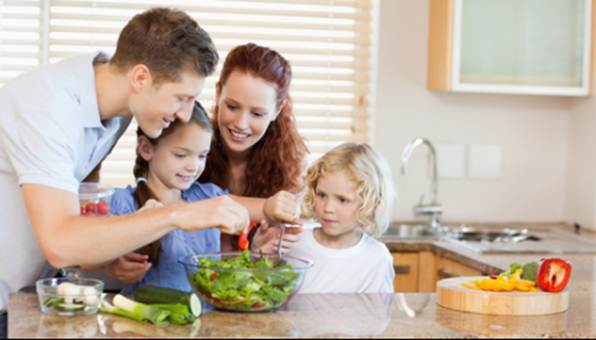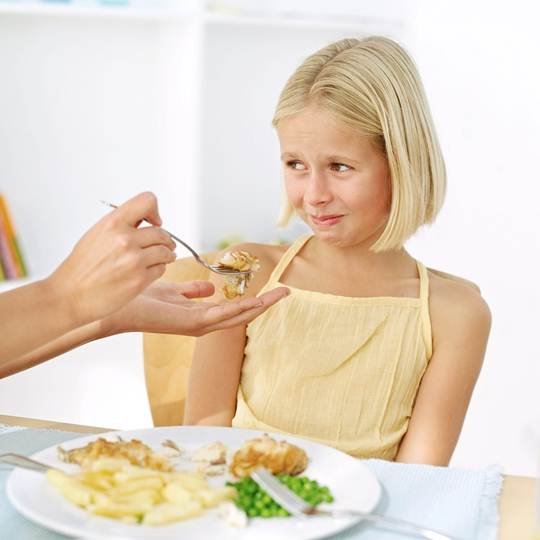Your relationship
with food can have a huge influence on your children, so what can you do to ensure you’re leading by example?
Don’t kid yourself – your children are
watching everything you eat. This is not a bad thing if you generally enjoy
food, eat balanced meals, indulge in the occasional chocolate bar without guilt
and consistently reach for nutritious snacks. But what if you eat poorly or
your relationship with food is difficult what impact can it have on your
child’s eating habits if you skip meals, pass on the green vegetables or reach
for that third donut when you’re stressed? Here, experts explain what you need
to do to ensure your kids grow up with the healthiest eating habits.
The ‘Do as I say, Not as I do’ attitude
As your children’s primary role models,
it’s up to us to set the standard. Mothers who led by example when it came to
making good food choices were found to have children with healthier diets,
according to a recent study published in The American Journal of Clinical
Nutrition.

“You
can’t expect them to eat their fruit and vegetables if they can see that you’re
not snacking on these foods during the day.”
“You need to practice what you preach,”
says advanced accredited practicing dietitian Melanie McGrice. “Kids are
perceptive. You can’t expect them to eat their fruit and vegetables if they can
see that you’re not snacking on these foods during the day.”
The same goes for drinking soft drink when
you’re serving them water or milk, wolfing down meals while telling them to eat
slowly, or insisting they sit down to eat while you’re constantly eating on the
run.
“Parents will often say to children, ‘Eat
at the table and be good’ and then they’ll have their dinner later in front of the
TV,” says McGrice. “But your children are more likely to sit at the tablet and
eat well if you eat with them.”
In the end, giving out mixed messages will
only make it harder for your children to adopt healthier habits and keep them
up in the long-term. It’ll also undermine any positive food attitudes you do
model. It’s simple, really. If you want your children to sit down, enjoy dinner
and eat their peas, sit down, enjoy dinner and eat your peas, too.
Create ‘calm’ around food
It’s a parent’s job to model healthy
behaviours and provide healthy food choices, but also to “establish an
environment that’s calm and settled around food,” says Dr Rick Kausman, a
director of The Butterfly Foundation for Eating Disorders and author of If
Not Dieting, Then What? (Allen & Unwin, $29.95). This isn’t easy when
you have food anxieties or diet demons left over from your own childhood.
“As a dietitian, I see adults who say, ‘I
was yelled at and told I wasn’t allowed to leave the table until I ate
everything on my plate. Now I feel like I have to eat everything’,” says
McGrice.
To help our children avoid such
counterproductive messages, we can start by changing the language we use around
food. “If we talk about food using words such as ‘junk’ or ‘good’ or ‘bad’ or
if we tell a child ‘you’ve been naughty today’ for eating a high-sugar or
high-fat food, they will almost always fell like they’re doing something
wrong,” says Kausman.
He advises calling a high-fat or high-sugar
food a ‘sometimes’ food. And when you’re eating ‘sometimes’ foods together,
make sure to take pleasure in it, he adds. “If you savour a ‘sometimes’ food,
rather than stuff it down quickly or guiltily, then it’s impossible to eat too
much. Your children will pick up on the amount you’re eating and, just as importantly,
that you’re enjoying it, so it’s a positive behaviour to model.”
Don’t insist they clean their plate
Many parents do it, but forcing kids to
‘eat it all up’ can potentially affect their appetite and weight in the
long-term. “The problem with insisting children eat everything on their plate
is that it gets them into the habit of not listening to their bodies, which
often leads them to eating more than their body is actually asking for,” says
Kausman.

We
need to make sure the portion sizes are reasonable and appropriate for their
age
When left to decide themselves, most kids
get it right regarding their fullness signals, although we need to make sure
the portion sizes are reasonable and appropriate for their age.
There also have to be guidelines and limits
on what they can eat between meals, says McGrice. “For instance, a child can’t
say ‘I’m not going to eat any of my main meal’, but then be allowed to eat
chips after dinner. The only thing that should be available after dinner if
they decide they’re hungry is the leftovers from their meal.”
Temper your control issues
Often parents who are struggling with their
own weight can overly restrict their child’s food intake or completely cut out
food groups in a bid to protect them from obesity. Other parents, in a
well-meaning attempt to promote a super-healthy environment, try to keep their
children from developing a taste for sweet, salty, processed or fatty food by
eliminating them altogether. Think of the kid at the birthday party who isn’t
allowed a piece of cake or the one who’s terrified of ingesting artificial
colours.

Many
parents who they put too much pressure on their children to eat in a way that’s
just not normal in the type of environment we’re living in
“When a kid is not able to live like a kid,
you risk finding wrappers under their bed,” says Kausman. “They’re now sneaking
food because they haven’t been allowed to have food other children eat. I’ve
seen many parents who thought they were doing the right thing but,
inadvertently, they put too much pressure on their children to eat in a way
that’s just not normal in the type of environment we’re living in. depending on
a child’s personality style or genetics, having a fear associated with certain
foods can then tip them into disordered eating or an eating disorder.”
Rather than banning foods, parents need to
restore balance by explaining why eating a range of healthy foods is important.
“Explain why some foods are better choices than others,” says McGrice. “For
instance, ‘A piece of fruit is going to help you concentrate better at school
while most processed foods containing artificial colours can affect your mood.
It’s not that you can’t eat them, it’s just that we want most of our diet to be
full of these healthy foods which give us the nutrition we need’.”